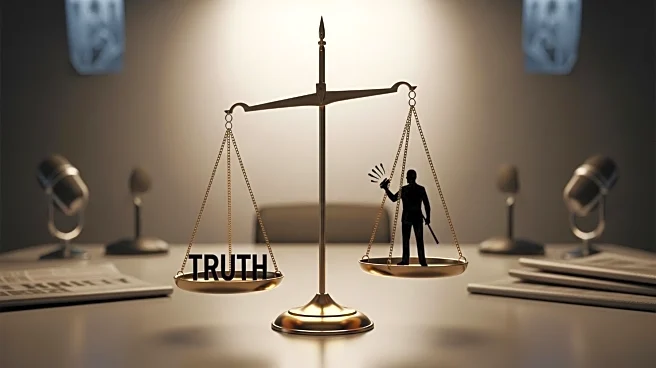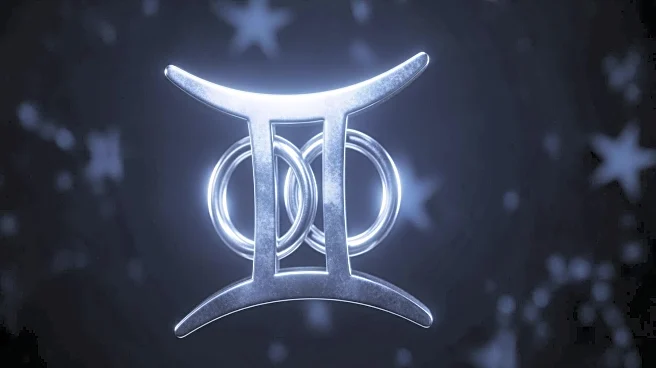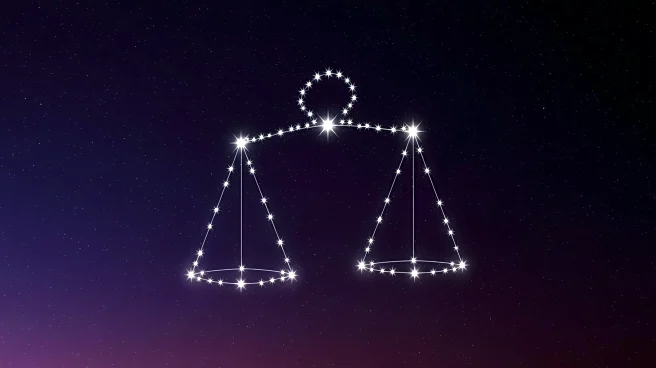What's Happening?
Channel 4 aired a program titled 'Trump v the Truth,' which aimed to fact-check statements made by President Trump since he retook office in January. The show, part of a broader 'Trump Day' programming, featured a nearly three-hour segment that meticulously corrected over 100 claims made by Trump in various public forums, including speeches, interviews, and social media posts. The program was designed as a public service journalism effort, highlighting discrepancies in Trump's statements, such as his claims about drug price reductions and mail-in voting. The format involved showing clips of Trump followed by text corrections, aiming to provide viewers with a factual counter-narrative to Trump's assertions.
Why It's Important?
The significance of Channel 4's 'Trump v the Truth' lies in its attempt to hold a political leader accountable through rigorous fact-checking. In an era where misinformation can influence public opinion and policy, such initiatives underscore the role of media in safeguarding democratic processes. By challenging Trump's statements, the program sets a precedent for media outlets worldwide to engage in similar fact-based scrutiny. This approach may influence public perception and encourage critical evaluation of political rhetoric, potentially impacting voter behavior and policy discussions. However, the effectiveness of such programs in changing minds remains uncertain, especially among Trump's staunch supporters.
What's Next?
The airing of 'Trump v the Truth' may prompt discussions on the role of media in political accountability and the importance of fact-checking in public discourse. It could lead to increased scrutiny of political statements by other media outlets, potentially influencing how political narratives are constructed and consumed. Stakeholders, including political leaders, media organizations, and civil society groups, may react by either supporting or criticizing the program's approach, depending on their alignment with Trump's policies. The program's reception could also affect Channel 4's future programming decisions and inspire similar initiatives in other countries.
Beyond the Headlines
The program raises ethical questions about the media's responsibility in combating misinformation and the potential consequences of such efforts on public trust in journalism. It highlights the challenges faced by media outlets in balancing factual reporting with audience engagement, as prolonged fact-checking segments may not appeal to all viewers. Additionally, the initiative reflects broader cultural shifts towards demanding transparency and accountability from public figures, which could influence long-term media strategies and public expectations.










